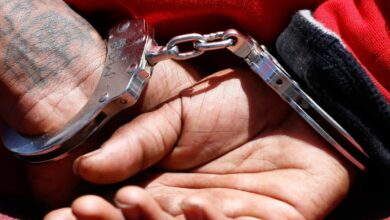How to Tell When an Aging Loved One Is Being Mistreated
Abuse can happen to anyone, including your older relatives. Recognizing that an aging loved one is being mistreated is critical to ensuring their safety and well-being. The most common types of mistreatment to look out for are emotional, physical, financial, and emotional abuse or neglect. Elderly individuals may be especially vulnerable to mistreatment if they suffer from health conditions that force them to rely on care from others.
Elder abuse always doesn’t appear as a big, flashing warning sign. You must take prompt action if you see subtler indicators so as to uncover mistreatment and prevent future occurrences. Here’s how to tell when an aging loved one is being mistreated and what you should do about it.
1. Unexplained Injuries
Unexplained injuries are one of the most significant warning signs an older loved one is experiencing abuse. Bruises, burns, scratches, and scars are common surface-level injuries to seniors. Most injuries in aging populations are linked to falls, which could cause fractures. Some older adults may bruise or fall easier than others, so injuries aren’t always a sign of mistreatment. However, you should inquire about all injuries you see and watch for any new ones.
Contact a medical provider to get your loved one’s wounds examined, even if they only look surface-level. If your aging relative lives in a nursing home, an onsite doctor should be able to provide an examination.
Unfortunately, staff or other assisted living facility residents could be causing the abuse. If you believe this applies to your situation, immediately contact a nursing home abuse attorney. They can help walk you through the proper steps for taking action against the facility. Reaching out to your local police could also be necessary for dealing with abuse.
2. Financial Troubles
An aging relative’s money woes — whether sudden or gradual — should set off alarm bells that something isn’t right. Seniors’ kindness and financial resources are easy for ill-intentioned people to exploit. Forging checks, stealing retirement funds, and taking benefits like Social Security are some of the most popular ways people steal from older adults. Changing names on bank accounts, life insurance policies, house titles, and living wills are also tactics swindlers use to take advantage of seniors.
If such incidents occur, contact your local police or sheriff’s office through a non-emergency number to file a report. In addition, you may report this abuse to your local district attorney’s office. You should also contact your relative’s bank or credit card issuer to see whether there are any options for recovering the stolen funds. Some financial institutions can help get your loved one’s money back where it belongs.
3. Sudden Changes in Mood
Mistreatment could present as a sudden and out-of-character mood shift in your loved one. Suffering from abuse takes a significant toll on a person’s mental and emotional well-being. Depression, confusion, and withdrawal are the top emotional states to look out for. The Institute on Aging’s Friendship Line can be an excellent resource for any senior, especially those suffering from emotional distress. The service provides emotional support and well-being check-ins.
If you notice any negative mood changes, try talking to your loved one when you are alone with them. Creating a safe space will help them discuss issues they’re experiencing that they might be unable to discuss around others. You can contact Adult Protective Services or local authorities if they tell you of any abuse. Your loved one’s healthcare provider can also offer guidance on handling declining mental health.
4. Poor Grooming Habits
Cleanliness and proper hygiene are critical aspects of health for anyone, including aging adults. Some older people can’t handle basic hygiene tasks independently and need an extra hand. This assistance often comes from a relative, home health aide, or nurse. Pay attention if your aging loved one appears unkempt, dehydrated, or malnourished, or their clothes or bed lines aren’t changed regularly. If not indicators of outright abuse, they certainly signal neglect.
Your loved one’s hair will often be the first place to show signs of substandard care. Keep detailed records of signs that they aren’t having their basic hygiene needs met. If your loved one resides in an assisted living facility, share this information with administrators. Insist that they outline the changes they will implement and then continue monitoring the situation to see that this happens.
Caring for Your Aging Loved One
Aging adults can be victims of abuse in a number of ways. Significant financial losses, physical injuries, and psychological trauma are some of the worst forms of mistreatment. Sadly, this type of abuse is all too common. Around 10% of adults 60 and older have experienced elder abuse. Unfortunately, only an estimated one in 24 cases of abuse is reported.
As the older population in the U.S. grows, everyone must be aware of the issue and step in when necessary. If you suspect the mistreatment of an older relative, your vigilance and diligence will be crucial in getting them the help they need. Your aging loved one deserves to have someone in their corner who has their best interests in mind. No matter their age, everyone deserves to be treated with kindness, gentleness, and respect.




